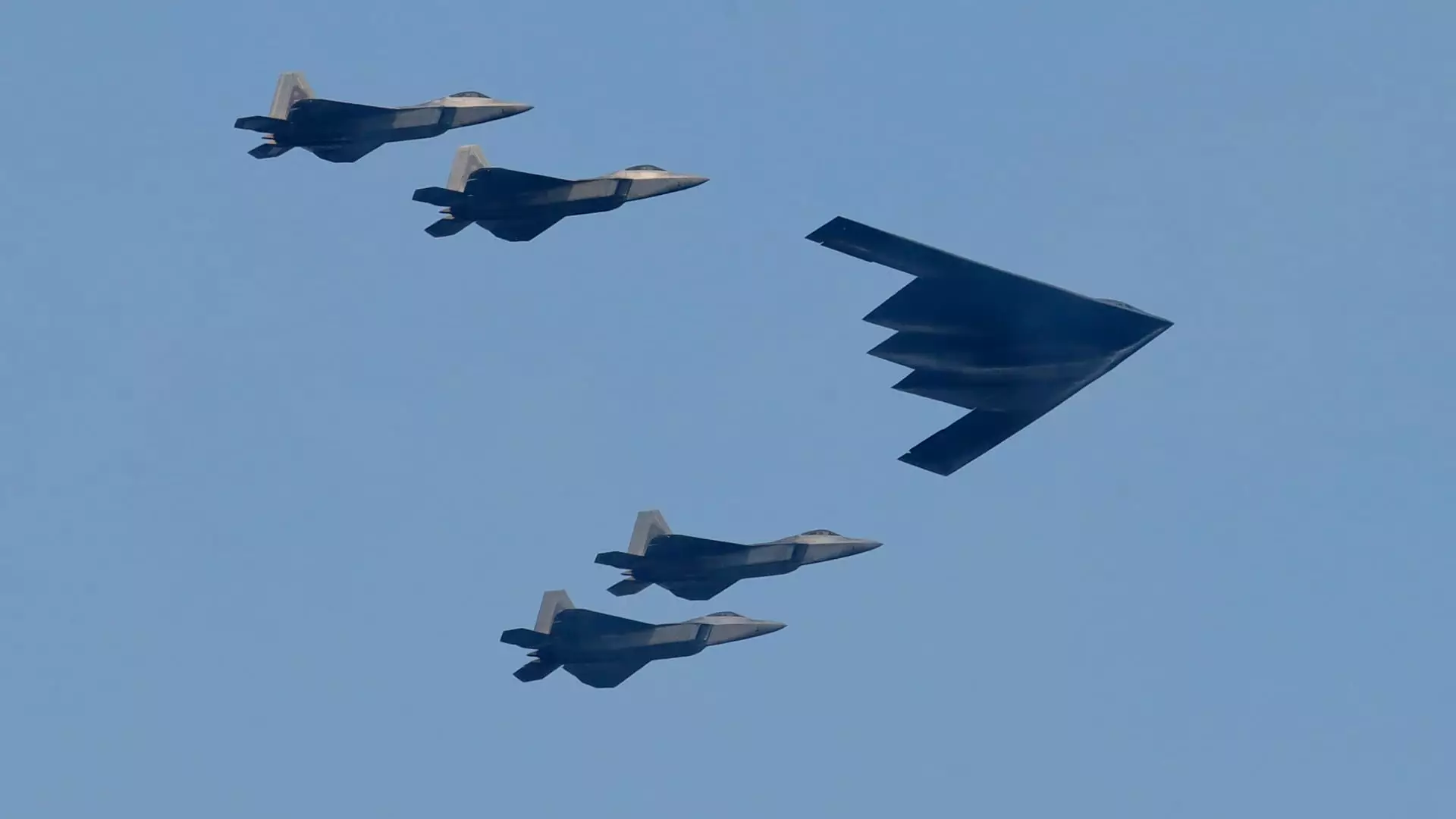The recent military operation conducted by the United States against Iranian nuclear facilities marks a perilous turn in international relations—one that threatens to ignite a broader conflict in the Middle East. President Donald Trump’s declaration of a “very successful attack” on key sites, including the Fordo facility, has garnered responses that oscillate between unwavering support and vehement condemnation. In a world striving for stability, such actions fuel instability instead. This response reflects not just immediate geopolitical sentiments, but exposes a broader disregard for the long-term ramifications of military aggression.
A Fractured Peace
Upon learning of the U.S. strikes, Israeli Prime Minister Benjamin Netanyahu celebrated the action, proclaiming it a pivotal moment for peace achieved through strength. This rallying of support from Israel does not take into account the sweeping consequences that such brutality can unleash. While Netanyahu invokes the old adage “peace through strength,” it is crucial to question whether the strength displayed actually leads to peace, or merely deepens the existing rifts and hostilities. The notion that bombings can pave the way for diplomatic conversations is not just naïve; it is dangerously misleading.
Contrarily, UN Secretary-General Antonio Guterres’s criticism of the attacks offers a clear-headed perspective on the dire situation. He warns of a “growing risk” that this volatile conflict could spiral into chaos, potentially leading to widespread civilian casualties. His emphasis on diplomacy over military action reflects a fundamental truth: the only genuine resolution to such entrenched conflicts requires engagement, dialogue, and mutual respect. The horrors of war cannot be solved with more firepower; they can only be addressed through understanding and compromise.
The Global Outcry
The backlash against the U.S. attack extends beyond the borders of Iran and Israel. Leaders from nations including Venezuela and Cuba have condemned the U.S. actions, framing them as violations of international law that deepen the humanitarian crisis in the region. Venezuela’s Foreign Minister decried the bombings, claiming them as a dangerous escalation orchestrated with Israeli interests at heart—a critique that rings true when considering the United States’ historically close ties with Israel.
It is essential to recognize how these acts of aggression can forge unprecedented alliances among nations opposed to U.S. foreign policy. As Cuba’s President Miguel Diaz-Canel stated, military interventions like these perpetuate cycles of violence and mistrust, necessitating urgent calls for international dialogue. In contrast, Mexico’s Foreign Ministry reiterates the importance of pacifism and diplomacy as fundamental principles in resolving tensions, suggesting that the echoing cries for peace are far from the current military strategies being employed.
A Fragile Landscape of Diplomacy
As world leaders express their concerns, it is clear that the unilateral decision to launch military strikes has severed the fragile threads of diplomacy that could have forged a path towards negotiation. The response from South Korea’s presidential office, which plans to convene emergency talks, underscores the unpredictable ripple effects of such actions. This reaction reflects a growing unease among nations facing the prospect of a renewed arms race in a region already fraught with conflict.
In more recent history, we have seen similar patterns where military interventions not only failed to solve the perceived threats but instead exacerbated the underlying issues. The lessons from Iraq and Afghanistan loom large, serving as reminders that force often begets further chaos. The U.S. strategy of resorting to military action as a first response is short-sighted at best and catastrophic at worst.
While the voices of praise may seem louder, the resounding cries for peace, negotiation, and understanding must not be overlooked or silenced. An escalatory approach towards Iran merely deepens existing tensions and sets a grim precedent for how conflicts are managed on the global stage. The international community must prioritize diplomacy and engagement over military might, steering the focus towards collaborative problem-solving rather than perpetuating cycles of violence. In today’s complex political landscape, the stakes have never been higher, and the need for rational dialogue versus reckless aggression has never been clearer.

Leave a Reply